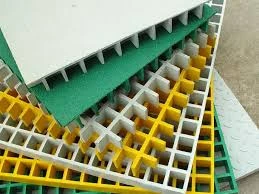loading...
- No. 9, Xingyuan South Street, Dongwaihuan Road, Zaoqiang County, Hengshui, Hebei, China
- admin@zjcomposites.com
- +86 15097380338
- Welcome to visit our website!
Effective Solutions for Treating Hard Water in Residential Settings
Understanding Hard Water Treatment Essential Insights
Hard water is a common issue faced by many households, characterized by high concentrations of calcium and magnesium ions. While not a health hazard, hard water can lead to various complications, such as scale buildup in pipes, reduced efficiency of appliances, and unsatisfactory cleaning results. Therefore, understanding hard water treatment is vital for maintaining the quality of water in our homes and ensuring the longevity of plumbing systems and appliances.
What is Hard Water?
Hard water is primarily caused by water passing through limestone or chalk deposits, which dissolve minerals as it travels. The hardness of water is typically measured in parts per million (ppm) or grains per gallon (gpg). Water that contains more than 120 ppm of calcium and magnesium is generally considered hard. There are two types of hard water temporary and permanent. Temporary hardness can be reduced by boiling the water, which precipitates the calcium carbonate. Permanent hardness, on the other hand, remains unchanged irrespective of boiling, necessitating chemical treatment methods for resolution.
Consequences of Hard Water
The presence of hard water can lead to several issues. One of the most noticeable effects is the formation of scale, a chalky deposit that accumulates on faucets, showerheads, and inside water heaters. Scale buildup can restrict water flow and reduce the efficiency of heating elements, leading to higher energy costs. Moreover, hard water can interfere with the effectiveness of soaps and detergents, resulting in less lather and unsatisfactory cleaning. Clothes washed in hard water may appear dingy and wear out faster due to the mineral deposits left behind.
Hard Water Treatment Methods
1. Water Softeners One of the most effective and popular methods for treating hard water is the use of a water softener. These devices work by replacing calcium and magnesium ions with sodium ions through a process called ion exchange. Water softeners come in various forms—salt-based systems, which require regular maintenance and salt refills, and salt-free systems that condition water through alternative technologies.
2. Reverse Osmosis Systems This method involves forcing water through a semi-permeable membrane that filters out impurities, including hard minerals. While highly effective, reverse osmosis systems can be costly and require significant installation space. They may also waste a considerable amount of water in the purification process.
hard water treatment

3. Magnetic and Electronic Descalers These devices claim to alter the properties of minerals in hard water, preventing them from forming scale, although scientific evidence supporting their effectiveness is limited. They are less invasive and easier to install than traditional water softeners.
4. Chemical Treatments Another approach is to use chelating agents, such as EDTA (ethylenediaminetetraacetic acid), which bind to calcium and magnesium ions. This method can effectively soften water, but it may require constant application and can introduce additional chemicals into the water supply.
Choosing the Right Solution
The right hard water treatment method depends on various factors, including water hardness levels, household size, and budget. A water test can provide valuable insights into mineral concentrations, guiding homeowners in selecting the most appropriate treatment system.
Maintenance and Upkeep
Regardless of the chosen method, regular maintenance is essential to ensure optimal performance. For instance, salt-based water softeners must have their salt levels checked and replenished periodically, while reverse osmosis systems typically require filter replacements.
Conclusion
Treating hard water is essential for maintaining the efficiency of appliances, plumbing systems, and overall household cleaning. Understanding the causes and consequences of hard water, along with the available treatment methods, enables homeowners to make informed decisions that enhance water quality and preserve their investments. As awareness of hard water issues grows, investing in effective treatment solutions becomes more crucial than ever for achieving healthy, soft water in our homes.
-
GRP Structures: The Future of Lightweight, High-Performance EngineeringNewsJun.20,2025
-
FRP Water Tank: High-Performance Storage for Corrosive and Clean Water SystemsNewsJun.20,2025
-
FRP Square Tube: The New Industry Standard for Chemical and Structural ApplicationsNewsJun.20,2025
-
FRP Pultruded Profiles: The Ultimate Choice for Lightweight Structural StrengthNewsJun.20,2025
-
FRP Handrails: The Safer, Smarter, and Stronger Choice for Modern InfrastructureNewsJun.20,2025
-
FRP Grating: The Smart Solution for Durable, Lightweight Industrial FlooringNewsJun.20,2025
-
Why Choose a Galvanized Water Tank for Your Storage NeedsNewsMay.21,2025
